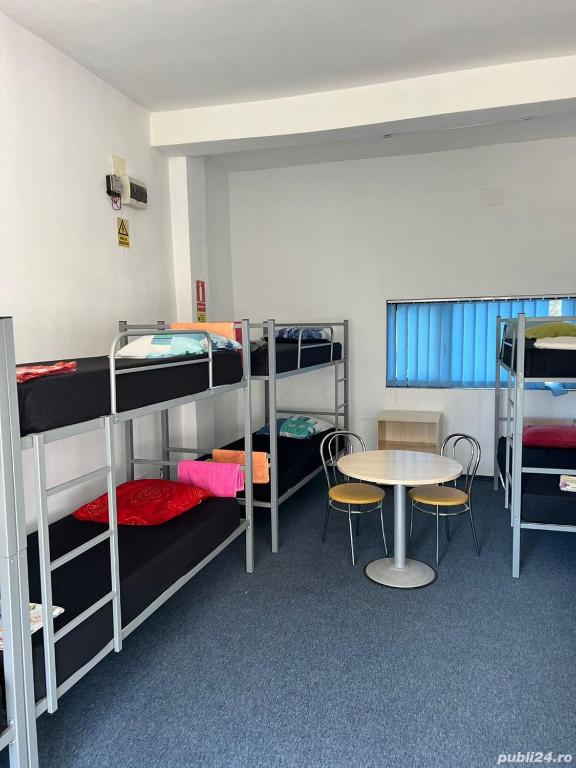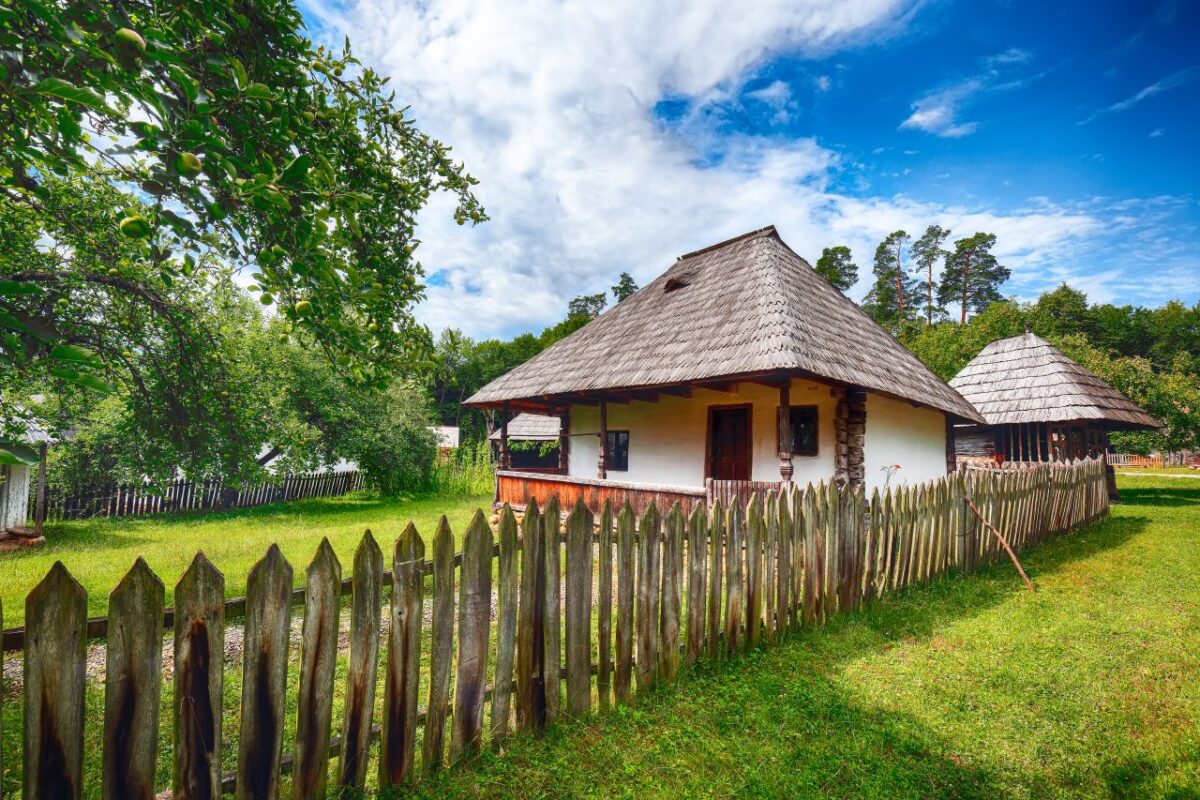Finding Accommodation in Romania: A Practical Guide for Nepalese Workers
Date: 10th October 2025Securing suitable accommodation is one of the most important aspects of settling successfully in Romania. Understanding the Romanian rental market, knowing your rights as a tenant, and finding housing that meets your needs and budget are crucial steps for Nepalese workers starting their new life in Europe. This comprehensive guide provides practical advice and essential information to help you navigate the Romanian housing market with confidence.

1. Understanding the Romanian Rental Market
The Romanian rental market varies significantly between cities and regions, with different options available depending on your budget, location preferences, and lifestyle needs.
Major Cities vs. Smaller Towns
Bucharest, Cluj-Napoca, Timișoara, and Iași have the most competitive rental markets with higher prices but better amenities. Smaller industrial cities where many Nepalese workers find employment often offer more affordable housing options.
Types of Accommodation
Romania offers various housing options including apartments in communist-era blocks, modern residential complexes, private houses, and shared accommodations. Each type has its advantages and considerations for foreign workers.
Market Trends
Rental prices have been gradually increasing in recent years, particularly in urban centers with strong job markets. Understanding current market rates helps in budget planning and negotiation.
2. Budgeting for Accommodation in Romania
Proper financial planning is essential when searching for accommodation in Romania. Your housing budget should include not only rent but also additional costs that many newcomers overlook.
Average Rental Costs
Rental prices vary by location: Bucharest (€250-€500/month for one-bedroom), other major cities (€200-€400/month), and smaller towns (€150-€300/month). Prices are typically higher for furnished apartments in central locations.
Additional Costs
Budget for utilities (€100-€200/month), internet and TV (€15-€30/month), building maintenance fees (if applicable), and a security deposit (usually one month's rent).
Income-to-Rent Ratio
As a general rule, your monthly rent should not exceed 30-40% of your net income. This ensures you have sufficient funds for other living expenses and savings.

3. Popular Residential Areas for Foreign Workers
Different cities in Romania offer various neighborhoods that cater to different preferences and budgets. Understanding these areas helps in making informed decisions.
Bucharest Neighborhoods
Areas like Drumul Taberei, Băneasa, and Titan offer good value, while central sectors 1 and 2 provide better accessibility but higher prices. Consider proximity to public transport and your workplace when choosing.
Industrial City Options
In cities like Ploiești, Brașov, and Craiova, look for areas near industrial zones where many manufacturing companies are located, but balance this with access to amenities and services.
Community Considerations
Some areas have established international communities that can provide support networks for new arrivals. Research areas with existing Nepalese or South Asian communities for additional cultural support.
4. The Rental Process Step by Step
Understanding the rental process in Romania helps avoid common pitfalls and ensures a smooth transition into your new home.
Searching for Properties
Use online platforms like Imobiliare.ro, Storia.ro, and OLX.ro. Consider working with real estate agents (agent imobiliar) who can help navigate language barriers and legal requirements.
Property Viewings
Schedule multiple viewings, inspect properties thoroughly, check for working utilities, and ask about neighbors and building rules. Take photos during viewings to compare options later.
Documentation and Contracts
Rental contracts should be in Romanian and English, clearly stating rent amount, payment terms, duration, and responsibilities of both parties. Ensure you understand all clauses before signing.
5. Understanding Rental Contracts and Tenant Rights
Romanian rental law provides specific protections for tenants, but it's essential to understand your rights and obligations.
Standard Contract Elements
Contracts typically include parties' details, property description, rent amount and payment date, contract duration, security deposit terms, and conditions for termination.
Tenant Rights
You have the right to quiet enjoyment of the property, timely repairs, and proper notice for landlord visits. Understand procedures for requesting repairs and handling emergencies.
Security Deposits
Typically one month's rent, refundable within 15-30 days after contract termination, minus any damages beyond normal wear and tear. Document the property's condition upon move-in with photos.
6. Utilities and Services Setup
Setting up utilities is an essential step when moving into a new property in Romania.
Essential Utilities
Electricity (distributed by Hidroelectrica or Electrica), gas (if applicable), water and sanitation, heating (central or individual), and internet/TV services.
Registration Process
Most utilities require your rental contract, passport, and sometimes your residence permit. Some landlords include utilities in the rent, while others require tenants to set up individual contracts.
Payment Methods
Utilities can be paid through bank transfer, direct debit, or at payment terminals. Setting up automatic payments can help avoid late fees and service interruptions.
7. Furnished vs. Unfurnished Accommodation
Choosing between furnished and unfurnished properties depends on your budget, length of stay, and personal preferences.
Furnished Apartments
Ideal for short-term stays or workers who prefer convenience. Typically include basic furniture, kitchen appliances, and sometimes bedding and utensils. Usually 10-20% more expensive than unfurnished options.
Unfurnished Properties
Better for long-term stays, allowing personalization. Require investment in furniture but offer more flexibility. Consider the cost and logistics of furnishing when budgeting.
Semi-Furnished Options
Some properties offer basic furniture (beds, tables) while allowing you to add personal items. This can be a good compromise between cost and convenience.
8. Shared Accommodation Considerations
Shared accommodation can be a cost-effective solution, especially for single workers or those new to Romania.
Cost Benefits
Sharing rent and utilities can reduce housing costs by 30-50%, allowing for better savings while maintaining comfortable living standards.
Finding Housemates
Look for roommates through workplace connections, community groups, or specialized platforms. Consider compatibility in terms of lifestyle, schedules, and cleanliness standards.
Shared Living Agreements
Create clear agreements about shared expenses, cleaning responsibilities, guest policies, and quiet hours to prevent conflicts.
9. Employer-Provided Accommodation
Many companies in Romania provide accommodation for their international workers, which can simplify the settling-in process.
Types of Employer Housing
Options range from company-owned apartments and hostels to partnerships with local landlords. Quality and location vary, so inquire about specifics during job negotiations.
Understanding the Terms
Clarify whether accommodation is provided free, subsidized, or deducted from salary. Understand what utilities and services are included and your responsibilities.
Transition to Private Housing
Many workers start with employer-provided housing and transition to private accommodation once they're familiar with the city and have built savings.
10. Cultural Considerations and Community Integration
Finding the right accommodation involves more than just physical space; it's about creating a home and integrating into the community.
Local Customs
Romanians typically remove shoes when entering homes, maintain moderate noise levels, and value well-kept common areas. Understanding these customs helps build good relationships with neighbors and landlords.
Community Resources
Look for areas with access to international food stores, places of worship, and community centers. Proximity to these resources can significantly ease cultural adaptation.
Building Support Networks
Connect with local Nepalese communities and international groups that can provide advice, support, and social connections as you settle into your new home.
Conclusion
Finding suitable accommodation in Romania is a crucial step in building a successful and comfortable life as a Nepalese worker in Europe. While the process may seem daunting initially, thorough research, careful planning, and understanding of the local rental market will lead you to a home that meets your needs and budget.
Remember that your accommodation choice impacts not only your comfort but also your overall experience in Romania. Take the time to find a place that feels like home, supports your well-being, and facilitates your integration into Romanian society.
With the right approach and the information provided in this guide, you can navigate the Romanian housing market confidently and find accommodation that serves as a solid foundation for your new life and career in this beautiful European country.